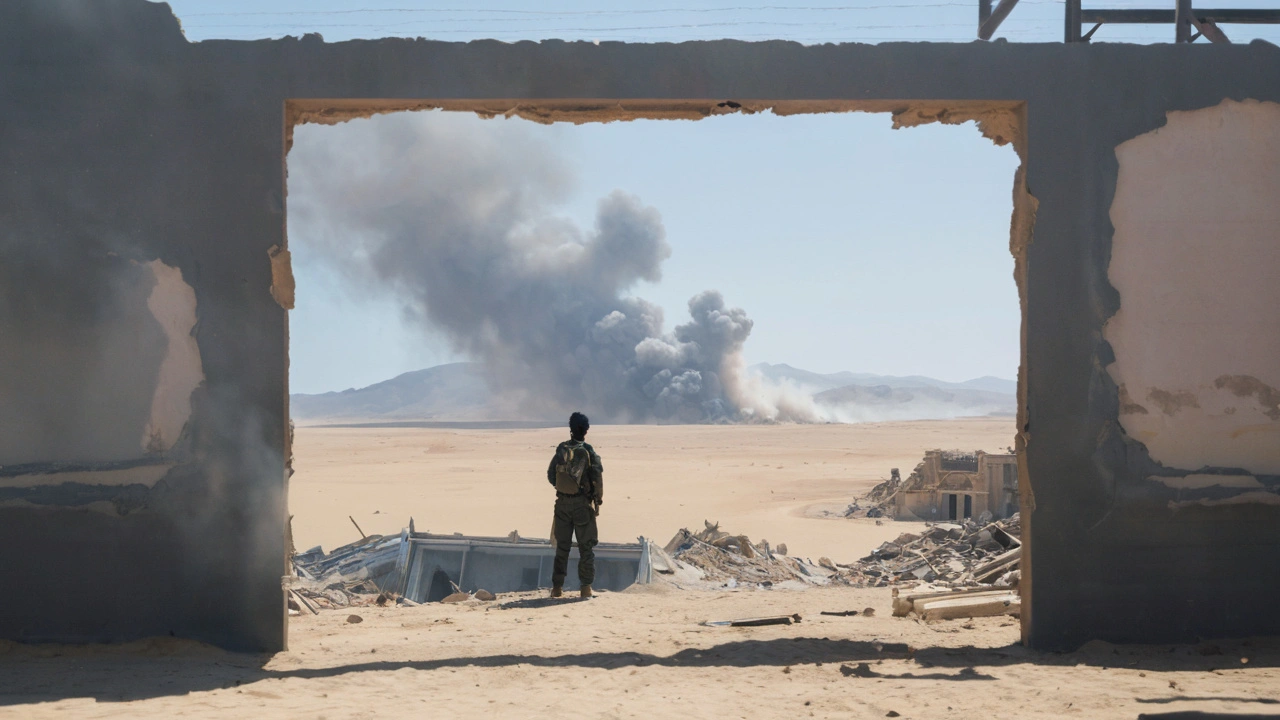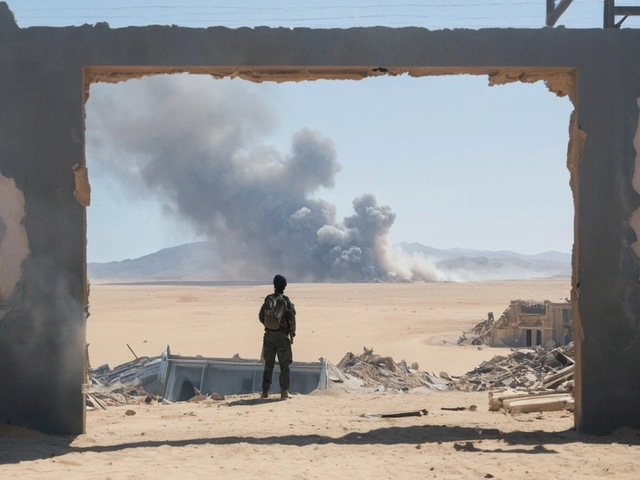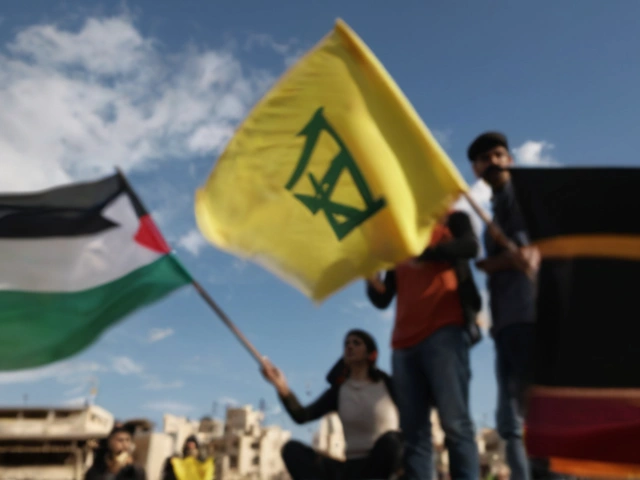Resuming Stalled Cease-Fire Talks
In a joint statement, the U.S. alongside frustrated international mediators called upon Israel and Hamas to urgently return to the negotiating table to resume stalled cease-fire talks. The ongoing conflict in Gaza has left a staggering toll on human lives, infrastructures, and regional stability, pushing mediators to take decisive actions to accelerate the peace process.
Key Mediators in the Process
The united front of President Joe Biden, Egyptian President Abdel Fattah el-Sisi, and Qatari Emir Tamim al-Thani underscores the high-level diplomatic efforts being channeled into ending this prolonged conflict. These leaders have been at the forefront of indirect negotiations, working tirelessly to bridge the gaps between the opposing parties. They have reiterated that only minute details, particularly surrounding the implementation of a cease-fire and the logistics of a hostage release, are left to be hashed out.
Urgency for Action
The calls for renewed talks carry a sense of immediate urgency. The joint statement released emphasized that “there is no further time to waste, nor excuses from any party for further delay.” With Israeli Prime Minister Benjamin Netanyahu's office confirming the dispatch of a negotiations team by mid-August, observers are cautiously optimistic about reaching a breakthrough. However, the duration and intensity of the discussions remain uncertain due to the numerous intricate details that need to be settled.
Complex Issues to Address
The resolution of the Gaza conflict hinges on a few remaining areas of disagreement. A senior U.S. official highlighted critical aspects that still need to be resolved, including the precise timing of a proposed Palestinian detainees and Israeli hostages swap. These details are often delicate and can have profound implications for both sides.
Adding to the complexity of the talks is the recent escalation in hostilities. The assassination of Hamas leader Ismail Haniyeh on July 31, a figure heavily involved in prior negotiations, has exacerbated tensions. Despite this, U.S. officials remain confident that negotiations can proceed, citing the replacement of Haniyeh with Yahya Sinwar, Hamas’ military chief now acting as the group's political leader. This transition has been marked by significant skepticism and apprehension both within Hamas and among international observers.
Accusations and Criticisms
Critics of Israeli Prime Minister Netanyahu have voiced concerns about his approach to the negotiation process. They accuse him of deliberately stalling the peace talks to extend the military offensive in Gaza. The conflict, which ignited on October 7 following a brutal attack by Hamas militants that left 1,200 Israelis dead, has since led to catastrophic loss of life in Gaza, with nearly 40,000 Palestinians killed. This devastating casualty count has amplified calls for an immediate cease-fire to end further bloodshed.
Impacts of the Conflict
The ripple effects of the Gaza conflict extend far beyond those immediately caught in the crossfire. The humanitarian crisis has intensified, with countless families being uprooted from their homes and communities. The infrastructure damage has crippled vital services, exacerbating the plight of civilians who are struggling to access basic necessities such as clean water, medical care, and safe shelter. The international community has voiced grave concern over the deteriorating conditions, urging for prompt intervention and a sustainable resolution to the conflict.
Hope for Peace
Despite the hostilities, there remains a thin thread of hope for peace, supported by the considerable efforts of international mediators. The willingness of both Israel and Hamas to send delegations to the proposed talks in Doha or Cairo next week signifies a crucial step forward. The anticipation surrounding the talks is palpable, with mediators ready to present proposals to tackle the remaining issues and lay the groundwork for lasting peace in the region.
The broader geopolitical landscape suggests that a successful negotiation would not only bring relief to the people of Gaza and Israel but could also foster a more stable Middle East. As the date for the negotiations looms, the world watches with bated breath, hoping that this round of talks will finally yield the much-needed cease-fire and pave the way for rebuilding and reconciliation.
Table: Key Dates in the Gaza War Negotiations
| Date | Event |
|---|---|
| October 7 | Hamas militants attack Israel, igniting the conflict |
| July 31 | Assassination of Hamas leader Ismail Haniyeh |
| August 15 | Israel to send negotiations team for cease-fire talks |
Conclusion
The upcoming negotiations represent a pivotal moment in the quest for peace in Gaza. With only a few contentious issues left to resolve, the urgency for a cease-fire has never been more critical. As leaders from the U.S., Egypt, and Qatar spearhead this diplomatic effort, the hope is that both Israel and Hamas will display the necessary resolve and flexibility to bring an end to this devastating conflict. A successful negotiation could mark a turning point, not just for the immediate region but for broader peace and stability in the Middle East.







Post A Comment